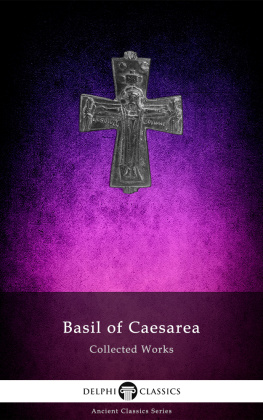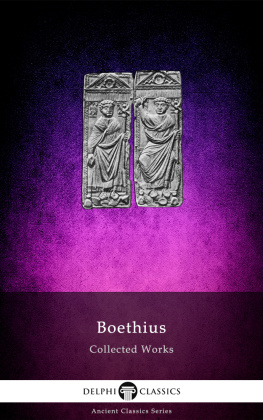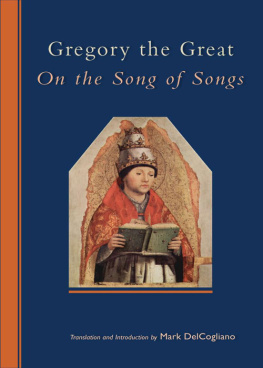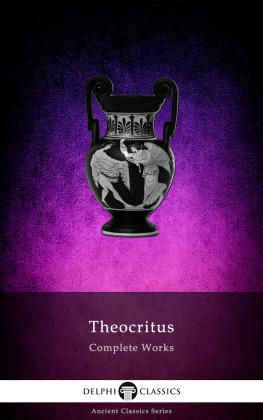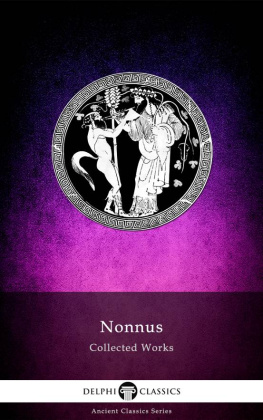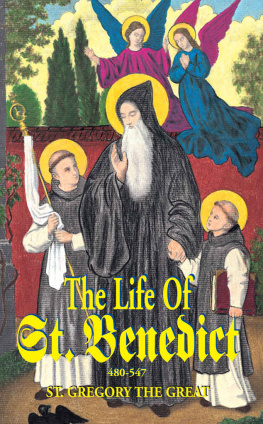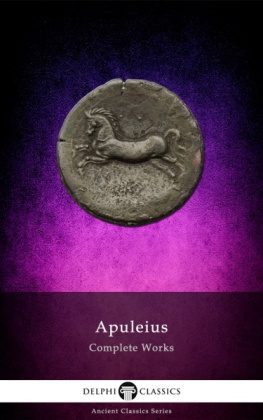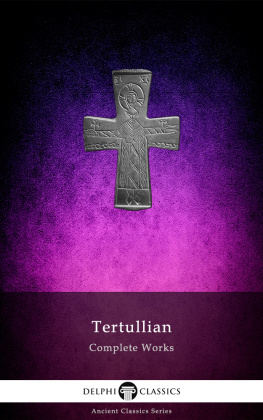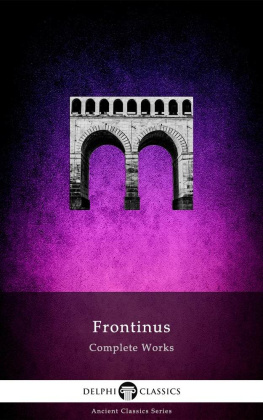
The Collected Works of
GREGORY I
(c. 540604)

Contents

Delphi Classics 2019
Version 1

Browse Ancient Classics







The Collected Works of
GREGORY I

By Delphi Classics, 2019
COPYRIGHT
Collected Works of Gregory I
First published in the United Kingdom in 2019 by Delphi Classics.
Delphi Classics, 2019.
All rights reserved. No part of this publication may be reproduced, stored in a retrieval system, or transmitted, in any form or by any means, without the prior permission in writing of the publisher, nor be otherwise circulated in any form other than that in which it is published.
ISBN: 978 1 78877 962 3
Delphi Classics
is an imprint of
Delphi Publishing Ltd
Hastings, East Sussex
United Kingdom
Contact: sales@delphiclassics.com

www.delphiclassics.com
The Translations

The Imperial fora of Rome Gregory was born into a wealthy patrician Roman family with close connections to the church.
Commentary on Job

Translated by J. Bliss, 1847
Gregorys Commentary on Job , or Moralia, sive Expositio in Job , was written between 578 and 595. The work was commenced when Gregory was serving at the court of Tiberius II at Constantinople and completed several years later in Rome. Regarded widely as a major work, it comprises 35 books, offering an extensive consideration of Moral Questions. The text is based on talks Gregory gave on the Book of Job to his brethren, who accompanied him to Constantinople. The work as we have it is the result of Gregorys revision and completion of the manuscript soon after his accession to the papal office.

Gregory and his Dove, Corpus Christi College, Cambridge Ms 389
CONTENTS

Saint Gregory the Great by Jos de Ribera, c. 1614
THE EPISTLE.
WHEREIN HE EXPLAINS THE TIME, OCCASION, DIVISION, PLAN, AND THE METHOD OF DISCOURSE AND OF INTERPRETATION PURSUED IN HIS WORK.
To the Most Devout and Holy Brother, my fellow Bishop Leander , Gregory, the servant of Gods servants.
I. WHEN I knew you long since at Constantinople, my most blessed brother, at the time that I was kept there by the affairs of the Apostolical See, and that you had been brought thither by an embassage, with which you were charged, on counts touching the faith of the Wisigoths , I then detailed in your ears all that displeased me in myself, since for late and long I declined the grace of conversion, and after that I had been inspired with an heavenly affection I thought it better to be still shrouded in the secular habit. For though I had now disclosed to me what I should seek of the love of things eternal, yet long-established custom had so cast its chains upon me, that I could not change my outward habit: and while my purpose [ animus ] still compelled me to engage in the service of this world as it were in semblance only, many influences began to spring up against me from caring for this same world, so that the tie which kept me to it was now no longer in semblance only, but what is more serious, in my own mind. At length being anxious to avoid all these inconveniences, I sought the haven of the monastery, and having left all that is of the world, as at that time I vainly believed, I came out naked from the shipwreck of human life. For as the vessel that is negligently moored, is very often (when the storm waxes violent) tossed by the water out of its shelter on the safest shore, so under the cloak of the Ecclesiastical office, I found myself plunged on a sudden in a sea of secular matters, and because I had not held fast the tranquillity of the monastery when in possession, I learnt by losing it, how closely it should have been held. For whereas the virtue of obedience was set against my own inclination to make me take the charge of ministering at the holy Altar, I was led to undertake that upon the grounds of the Church requiring it [ sub Ecclesiae colore ], which, if it might be done with impunity, I should get quit of by a second time withdrawing myself; and subsequently notwithstanding my unwillingness and reluctance, at the very time when the ministry of the Altar was a heavy weight, the further burden of the Pastoral charge was fastened on me, which I now find so much the more difficulty in bearing, as I feel myself to be unequal to it, and as I cannot take breath in any comfortable assurance in myself. For because, now that the end of the world is at hand, the times are disturbed by reason of the multiplied evils thereof, and we ourselves, who are supposed to be devoted to the inner mysteries, are thus become involved in outward cares; just as it happened then also when I was brought to the ministry of the Altar, this was brought about for me without my knowledge, viz. that I should receive the mighty charge of the Holy Order, to the end that I might be quartered under less restraint [ licentious excubarem ] in an earthly palace, whither indeed I was followed by many of my brethren from the monastery, who were attached to me by a kindred affection [ germana ]. Which happened, I perceive, by Divine dispensation, in order that by their example, as by an anchored cable, I might ever be kept fast to the tranquil shore of prayer, whenever I should be tossed by the ceaseless waves of secular affairs. For to their society I fled as to the bosom of the safest port from the rolling swell, and from the waves of earthly occupation; and though that office which withdrew me from the monastery had with the point of its employments stabbed me to death as to my former tranquillity of life, yet in their society, by means of the appeals of diligent reading, I was animated with the yearnings of daily renewed compunction. It was then that it seemed good to those same brethren, you too adding your influence, as you yourself remember, to oblige me by the importunity of their requests to set forth the book of blessed Job; and as far as the Truth should inspire me with powers, to lay open to them those mysteries of such depth; and they made this too an additional burden which their petition laid upon me, that I would not only unravel the words of the history in allegorical senses, but that I would go on to give to the allegorical senses the turn of a moral exercise, with the addition of somewhat yet harder, that I would crown [or fortify, cingerem ] the several meanings with testimonies, and that the testimonies, which I brought forward, should they chance to appear involved, should be disentangled by the aid of additional explanation.
Next page

